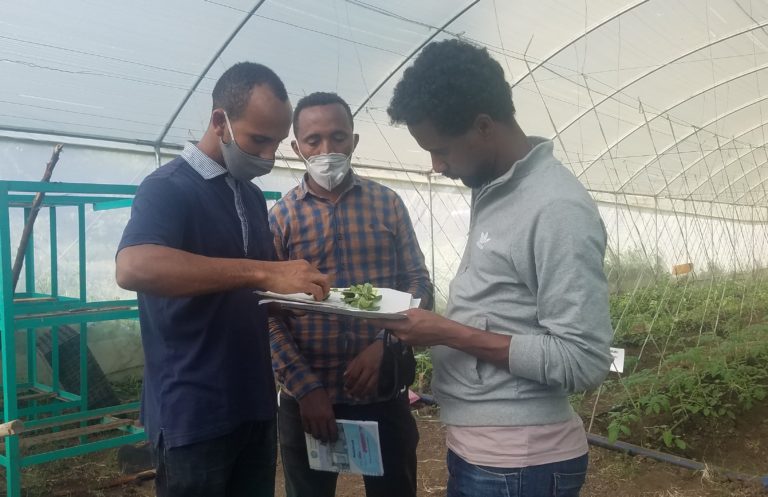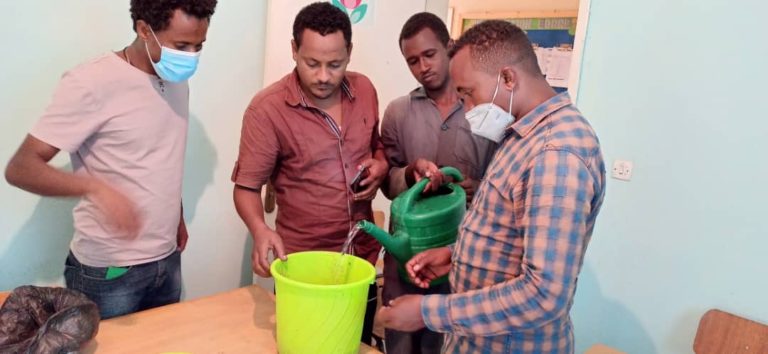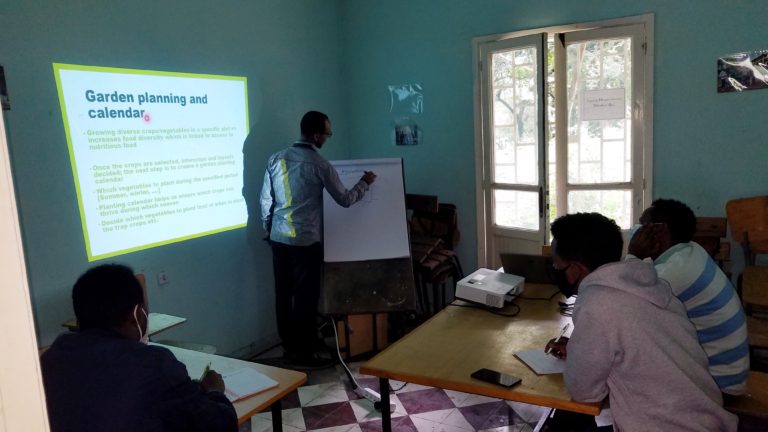The first necessary steps in setting up our training were the development of the college’s infrastructure, as well as the development of organic farming skills.
Infrastructure development
Initially we concentrated our efforts on the development of the garden. When we arrived at Bishoftu Polytechnic College (BPC) in 2018, the garden did not yet exist. The land was available, but it was unusable as it was. The garden had to be cleared, organised and developed. A water and soil quality analysis was carried out to check the cleanliness and quality of the soil to ensure pesticide-free production.
Our most important achievements were the installation of three greenhouses. Each of them allows us to grow specific vegetables in the best conditions. These greenhouses give the students the opportunity to work with more varieties of plants, but also to discover all the stages of their growth; from seedlings to harvesting.
Investments to improve the supply of electricity and water were also quickly undertaken. Indeed, the water pump, which was initially dependent on the country’s very unstable electricity network, was not able to ensure the irrigation of the plants. Solar panels were therefore installed. They also supply power to the offices and the computer room created by GFF. Finally, a new pump and irrigation system was installed.
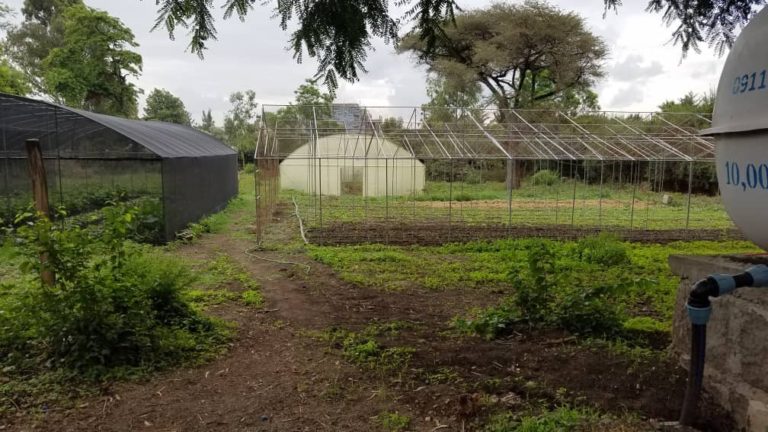
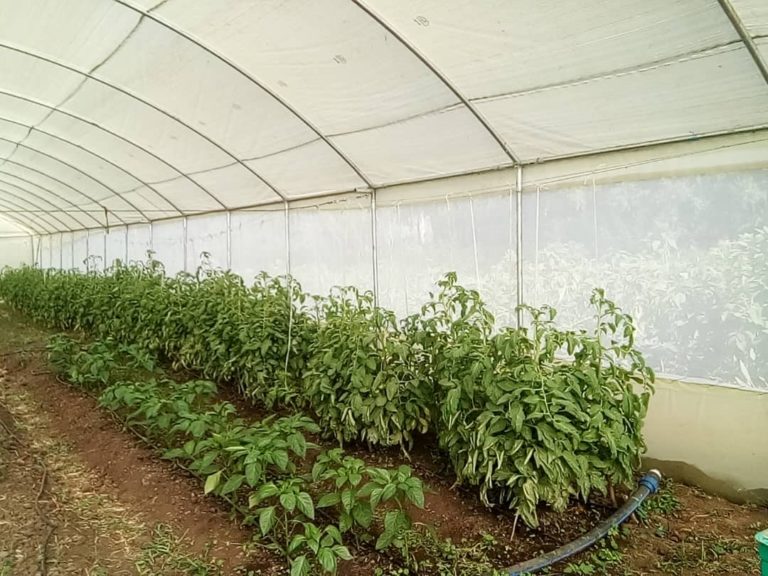
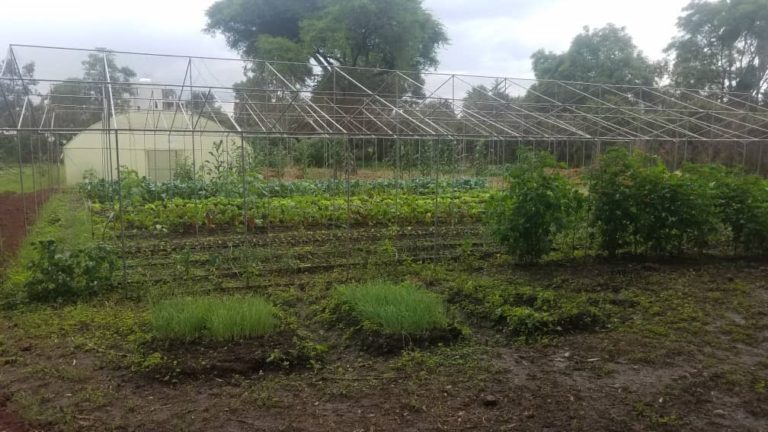
Skills development
Alongside these infrastructural developments, we also provide training for the college teachers in organic farming. Indeed, the teachers in charge of our training are agronomists, specialised in conventional agriculture. It was therefore essential to train them in organic farming.
This is why our teachers follow multiple training courses every year so that they become experts in the field. As there are no training centres for organic agriculture in Ethiopia, we train our teachers abroad. Personalised coaching is also organised by organic experts.
Finally, in order to ensure that future graduates have the necessary skills to successfully produce, market and sell organic products, the training is enriched with English and entrepreneurship courses. We encourage our students to think “outside the box”, as organic agriculture in Ethiopia offers many opportunities. They will as a result have all the cards in hand to seize these opportunities and start their own project.
